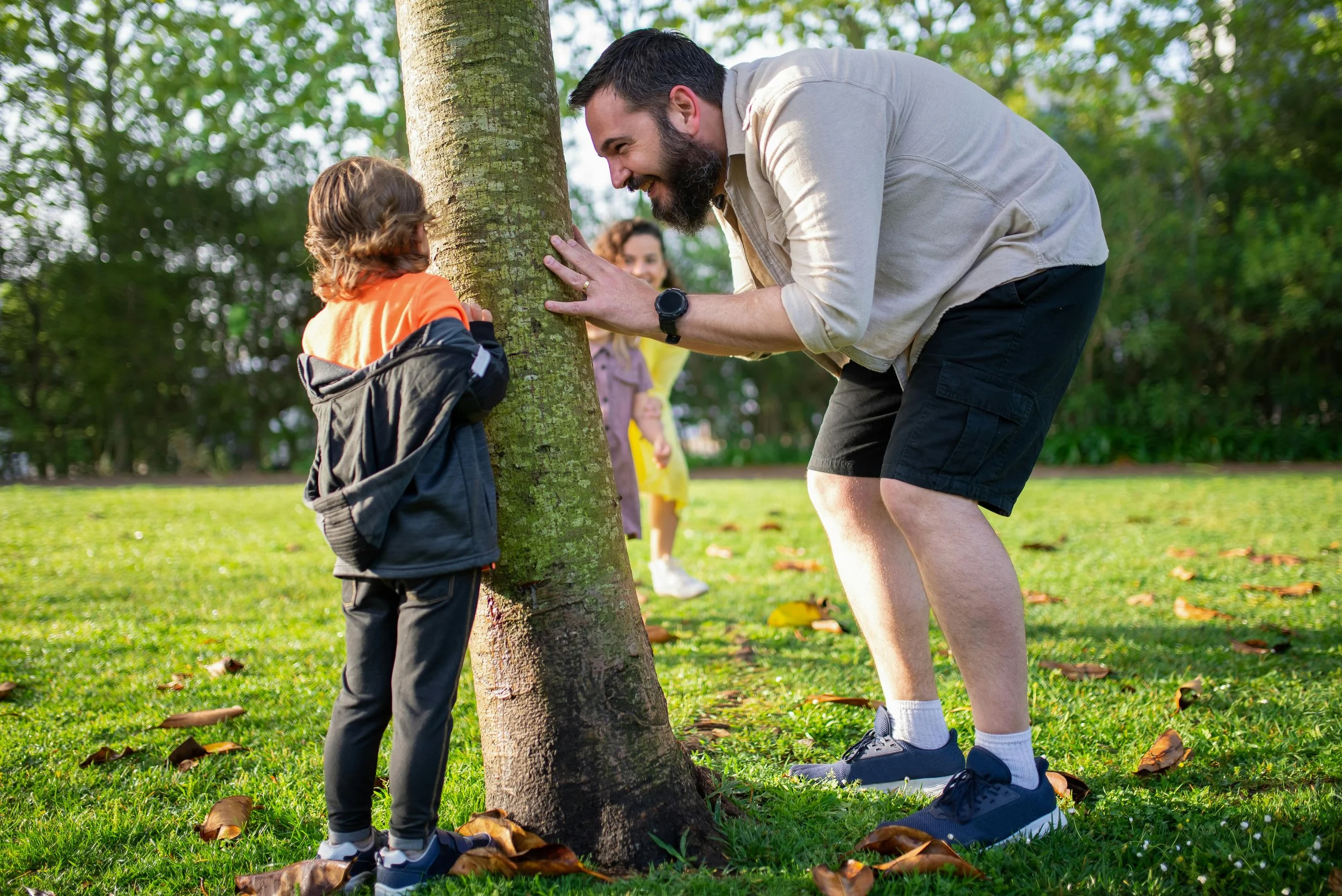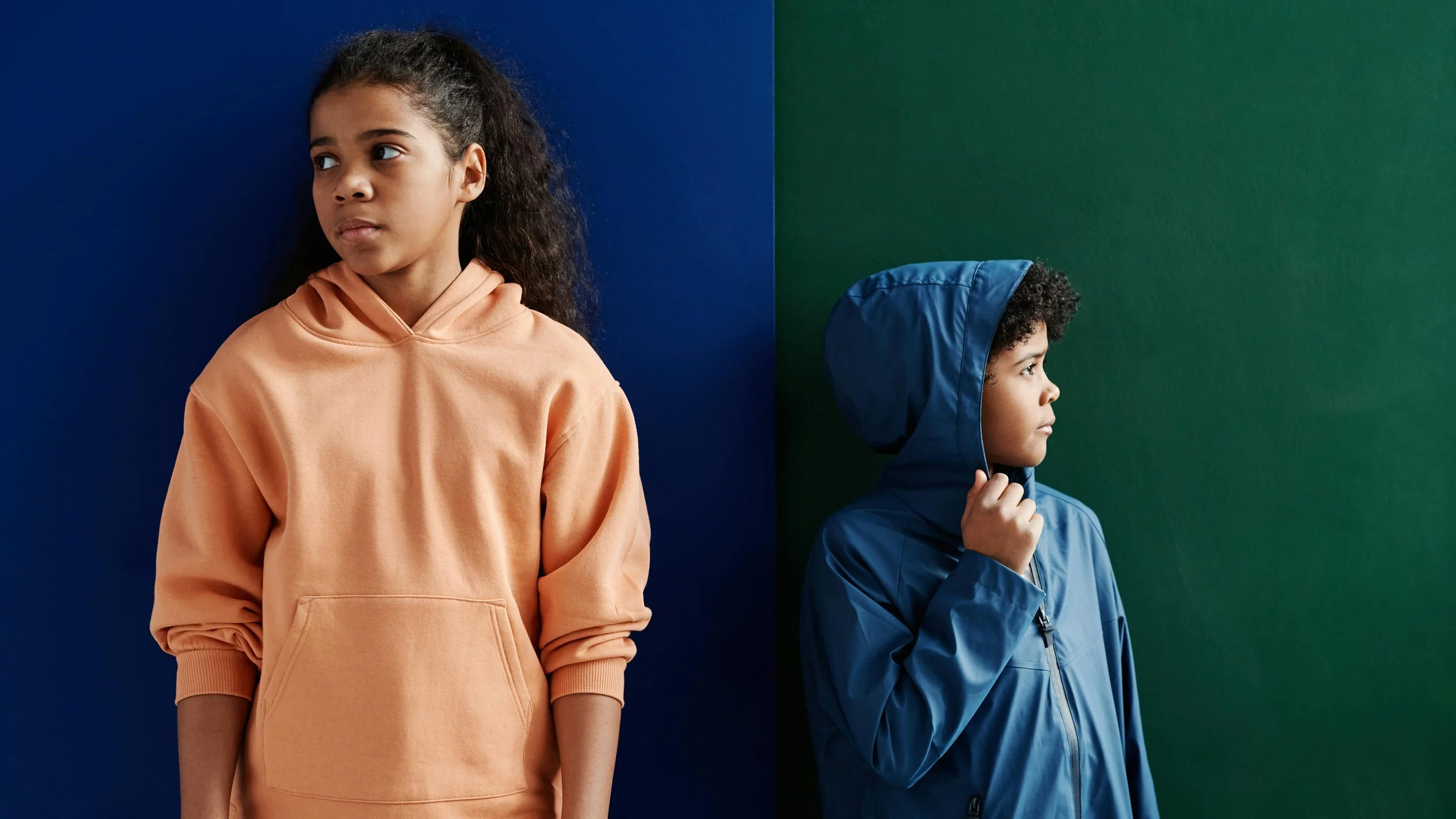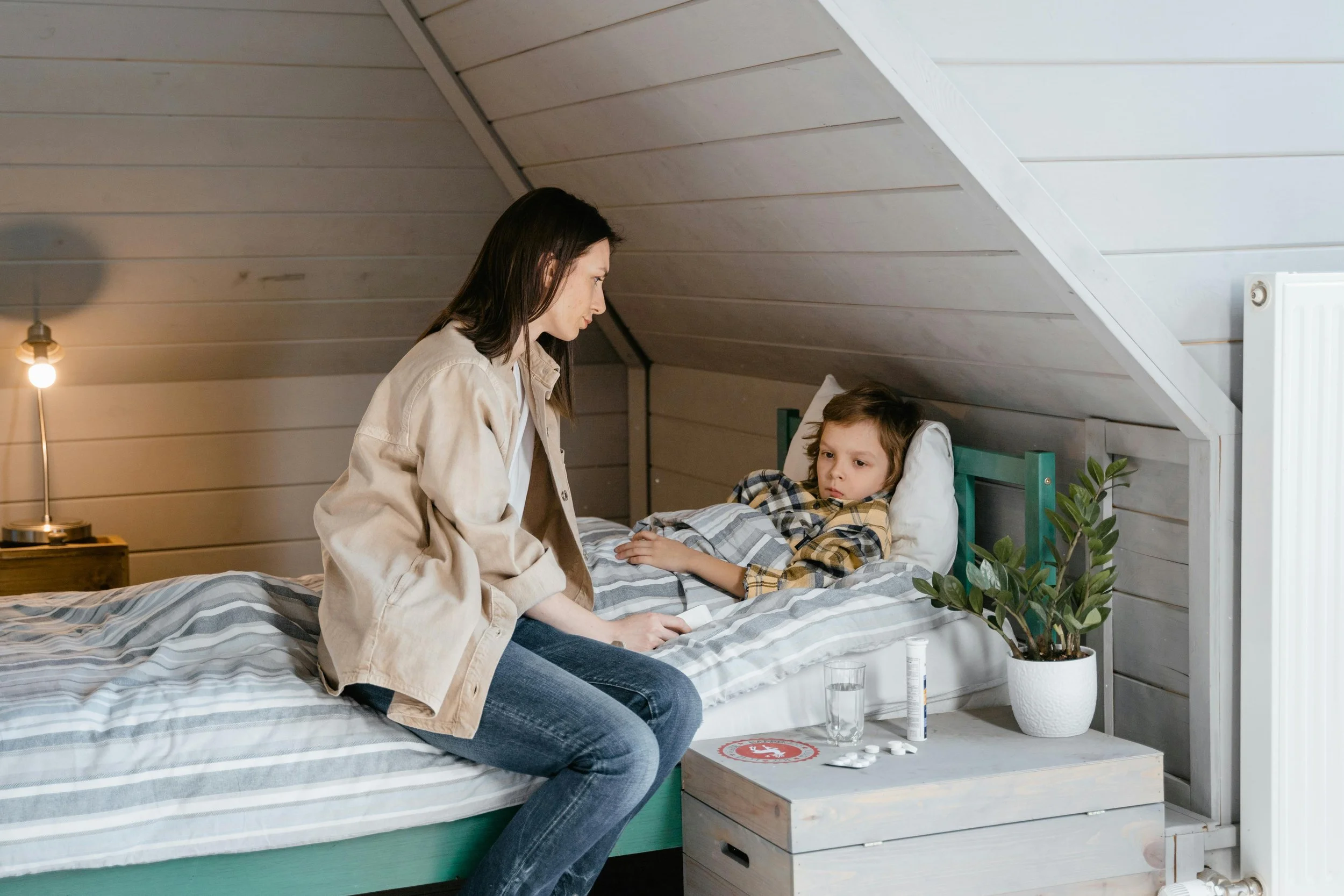Social Anxiety vs Shyness: When Your Child Needs Support
As a parent, watching your child struggle in social situations can be heartbreaking. You might notice them hanging back at birthday parties, avoiding eye contact with new people, or seeming reluctant to join group activities. The question that often comes up is: "Is my child just shy, or is this something more?"
Understanding the difference between shyness and social anxiety isn't just about labels. It's about knowing when your child might benefit from additional support and when their social struggles indicate a deeper challenge that deserves attention.
What Shyness Really Looks Like
Let me start by saying that shyness is completely normal. Many wonderful, successful people were shy children. A shy child might:
Need a few minutes to warm up at birthday parties, but eventually join in
Feel butterflies before speaking up in class, but can do it when they need to
Prefer hanging out with one close friend rather than a big group
Feel nervous meeting new people but open up once they feel comfortable
Take their time making friends, but form meaningful connections
The key thing about shy children? They can push through their discomfort, especially with gentle encouragement from you. Their shyness doesn't stop them from living their life or doing things they want to do.
When It Becomes Social Anxiety
Social anxiety is different. It's not just nerves - it's an overwhelming fear that takes over and makes normal social situations feel impossible. Here's what I often see:
The Physical Signs
Your child might complain of stomachaches every Monday morning before school. They might have trouble sleeping the night before a playdate. You might notice them getting sweaty or shaky when they have to order their own food at a restaurant.
The Emotional Struggles
They're not just nervous - they're terrified of being judged or embarrassed. They might cry at the thought of having to present in front of the class. They avoid social situations entirely, even ones they used to love. Making friends feels impossible, not just difficult.
How It Affects Daily Life
This is the big one. When social anxiety takes hold, it starts interfering with everyday activities. They might refuse to go to school, miss out on activities they'd actually enjoy, or have complete meltdowns before social events. Their world starts getting smaller instead of bigger.
The Key Differences
The most important distinction between shyness and social anxiety is the level of distress and interference in your child's life. Shy children can push through their discomfort with support. Children with social anxiety experience overwhelming fear that prevents them from engaging, even when they want to.
Here's how I explain it to parents:
A shy child thinks, "I feel nervous, but I can try this."
A child with social anxiety thinks, "I'm so scared I can't even try, even though part of me wants to."
It's the difference between feeling uncomfortable and feeling overwhelmed.
What This Looks Like at Different Ages
Little Ones (Ages 4-6)
You might see them clinging to your leg at preschool pickup, even months into the school year. Some children become selectively mute - chatty at home but silent at school. Others have intense meltdowns when you try to leave them anywhere.
School-Age Kids (Ages 7-12)
They start declining playdate invitations. Raising their hand in class becomes impossible. They might even avoid using the bathroom at school because it means walking past other kids. You hear "my stomach hurts" a lot on school mornings.
Teenagers (Ages 13-18)
They stop joining clubs or sports they used to love. Social media becomes both a lifeline and a source of intense anxiety. They want friendships desperately but feel paralyzed about how to make them happen. They often re-think conversations they’ve had and find that they come up short.
When It's Time to Seek Help
Trust your instincts. If your child's social fears are:
Lasting for months without getting better
Making school harder for them
Preventing friendships from forming
Causing regular distress for your child or your family
Leading them to avoid normal kid activities
Showing up as physical symptoms
Then it's worth getting some professional guidance. You're not overreacting. You're being a thoughtful parent who wants the best for their child.
How We Can Help
At Hearts & Minds, we understand how heartbreaking it is to watch your sensitive, wonderful child struggle socially. We also know that the same depth and sensitivity that make social situations challenging for them is often what makes them such incredible kids.
Our approach combines evidence-based techniques with deep empathy for your child's experience. We offer several specialized programs designed to meet your child exactly where they are:
Teen and Tween Social Anxiety Groups
In our social anxiety groups, your child gets to practice being social with other kids who truly understand what it's like to feel anxious in social situations. They learn real strategies for managing anxiety while building genuine connections with peers. There's something powerful about not being the only one who feels this way.
Register for our Tween Social Anxiety Group → Register for our Teen Social Anxiety Group →
PEERS Social Skills Program
The PEERS program teaches the specific social skills that many kids never explicitly learn - like how to join a conversation, how to handle disagreements with friends, or what to do when someone says no to hanging out. These aren't abstract concepts - they're concrete skills your child can practice and use right away.
Explore our PEERS program →
Dialectical Behavior Therapy for Children
For children who need more personalized support, our individual therapy sessions use DBT-C (Dialectical Behavior Therapy for Children) to help kids manage big emotions and social anxiety. We work closely with both you and your child, meeting them exactly where they are to address their specific social anxiety challenges and build lasting coping skills.
Explore our DBT-C program →
Not Sure Which Option Is Right for Your Child?
I get it - figuring out what your child needs can feel overwhelming when you're already worried about them. If you're not sure which approach would be the best fit, let's talk. Schedule a free consultation call where we can discuss what's happening with your child, answer your questions, and figure out the best path forward together.
Schedule your free 15-minute consultation call →
You know your child better than anyone. You see their struggles, but you also see their heart, their creativity, their sensitivity, and their potential. Those beautiful qualities that make social situations challenging? With the right support, they often become their greatest strengths.
Free Resources for Your Family
💬 "Scripts for When Friendship Gets Messy"
Practical phrases for navigating social drama and peer conflicts
Perfect for: Therapists, school social workers, families with socially struggling children
📜 “A Parent’s Guide to Validating Teens”
Practical scripts to build trust and connection with teens
Perfect for: Parents of adolescents, teen therapists, school counselors
📘 “Play Your Way to a Stronger Connection”
10-minute daily play guide for building confidence, resilience, and deeper bonds
Perfect for: Parents of young children, therapists, pediatricians, early childhood educators
Moving Forward
The difference between shyness and social anxiety isn't always black and white, and that's okay. What matters is paying attention to what you're seeing and trusting yourself as a parent.
If you're reading this and thinking, "This sounds like my child," then you're already taking an important step. Your child's struggles with social anxiety don't define them - they're just one part of their story. And with understanding, support, and the right tools, this chapter can have a really beautiful ending.
Your child isn't broken. They don't need to be "fixed." They just need some support learning how to navigate a world that can feel overwhelming when you feel things as deeply as they do. And you don't have to figure this out alone.
If you're concerned about your child's social anxiety, I'm here to help. Contact Hearts & Minds to learn more about our programs and support options that can make a real difference for your family.
About the Author
Suri Nowosiolski, LCSW, MSpEd, is a licensed clinical social worker with over 30 years of experience supporting children and families through school transitions and challenges. She specializes in childhood anxiety, school refusal, social skills development, and parent support. Suri is the founder of Hearts & Minds Psychotherapy Group and offers evidence-based programs for families navigating educational and social challenges.
Looking for more support?
SPACE: Discover your power as a parent to free your child from anxiety. Learn SPACE, a parent-based treatment clinically proven to effectively reduce child anxiety – through nothing but smarter, more informed parenting.
PEERS® for Preschoolers: Help young children develop social independence and confidence through our evidence-based parent education group:
Tween Social Anxiety Group: Help your 9–12-year-old build confidence and feel more at ease in social settings.
Teen Social Anxiety Group: Build confidence and independence in social situations for middle and high school students:
DBT-C Parent Group: Learn skills to support children's emotional independence and regulation while reducing family stress:



